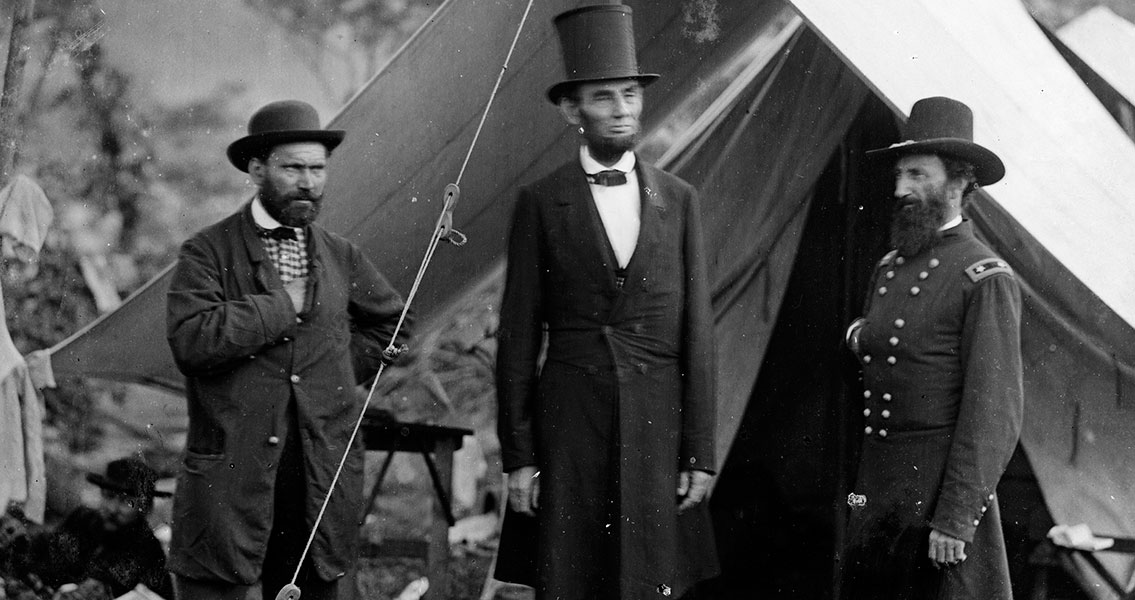<![CDATA[Abraham Lincoln narrowly avoided assassination on 23rd February 1861, less than week before his inauguration as President of the United States. Famously slain by John Wilkes Booth in a theatre in April 1865, the failed Baltimore Plot of 1861 shows that even before Lincoln took the presidency, secessionists were determined to kill the abolitionist president. Since his election victory in November 1860, Lincoln had received a wealth of death threats, his friends and associates becoming increasingly worried about his safety. The primary concern was the long rail journey Lincoln would have to make from Springfield, Illinois to Washington D.C. for his inauguration ceremony. Lincoln insisted that the planned railway tour of seventy towns scheduled to start on 11th February would be completed without a military escort, much to the shock of his advisers. Samuel Morse Felton, president of the Philadelphia, Wilmington and Baltimore Railroad, was convinced that Lincoln had failed to grasp the danger he was in. In particular, Felton believed that secessionists planned an elaborate conspiracy to capture Washington, then destroy all rail links to the city, preventing Lincoln's inauguration. The fact his railroad would be one of those destroyed in the plot pushed Felton to take the initiative, out of concern for his own property as well as the well being of the President. Allan Pinkerton, already a respected detective and renowned as the founder of the Pinkerton Detective Agency, was hired to investigate any suspicious activity along the Baltimore stretch of Felton's Philadelphia, Wilmington and Baltimore Railroad. Pinkerton, a Scottish immigrant to the US who had already served as Chicago's first detective before founding the Pinkerton Agency, had built a reputation as an incorruptible lawman. At the time, more and more states were seceding from the Union, following the example set by South Carolina. Lincoln would be travelling unescorted across a country divided over the issue of the abolition of slavery. In such a perilous situation, the threat to his life seems obvious with hindsight, but Felton and Pinkerton started their investigation on the assumption that secessionists would aim to disrupt the election through damage to the railroads, rather than attempting to kill the president. Pinkerton came across the assassination plot while working undercover. One of the conspirators, a barber called Cypriano Ferrandini, told Pinkerton on 15th February "One week from today the North shall want a new president, for Lincoln will be dead." The would be assassins planned to kill Lincoln in Baltimore, Maryland, which was then still a slave state. When Lincoln changed trains at the city's station, they group of conspirators would have attacked and stabbed the President elect to death. Upon hearing of the plot on his life, it is claimed that Lincoln defiantly refused to change his travel plans, at least until his wife demanded otherwise. Pinkerton hatched a plot to disguise Lincoln and smuggle him into the relative safety of Washington D.C. ahead of schedule. The plan worked, and Lincoln arrived unexpectedly at the Willard Hotel in Washington D.C. several days earlier than planned. Lincoln and his family remained in the hotel until 4th March, when he was finally inaugurated as president. The Baltimore Plot however, would be far from the last attempt on the life of Abraham Lincoln, highlighting the extreme divide in the USA during the Civil War period. ]]>
Lincoln Narrowly Escapes Baltimore Plot Assassination Attempt
